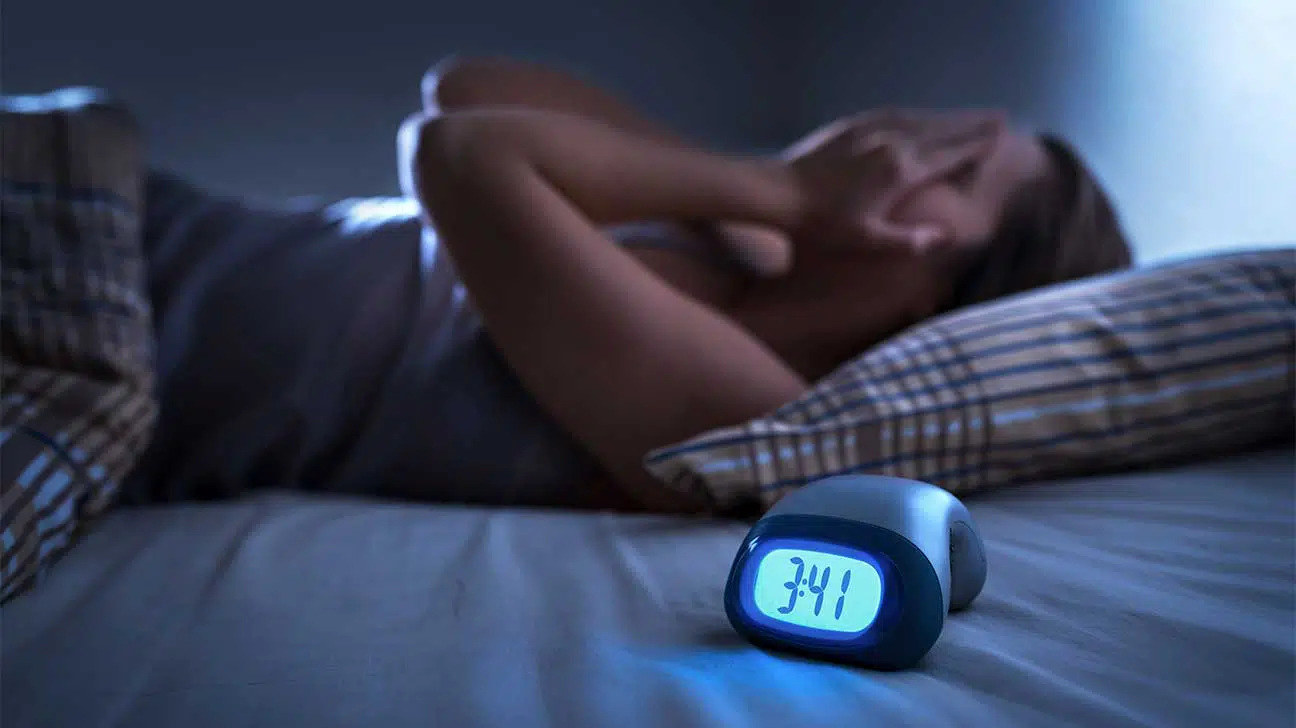
Vivitrol (naltrexone) is an addiction treatment medication that may cause sleeplessness, also known as insomnia, in some who take it.
Difficulty falling or staying asleep after getting the Vivitrol shot may be influenced by a variety of factors, including stress levels, substance use history, and overall health status.
Learn more about the side effects of Vivitrol
What Can Affect Sleep While Taking Vivitrol?
Sleep difficulties, including insomnia, are commonly reported by people with substance use disorders, including those who are in recovery.
Sleeplessness is also a common side effect of the medication, Vivitrol, which is an extended-release medication that is used to treat opioid and alcohol addiction.
While Vivitrol may contribute to insomnia, sleep problems can be influenced by a variety of factors, including biological factors, environmental factors, and other personal factors:
Chronic Substance Abuse
Chronic opioid and alcohol misuse can cause issues with sleep, including insomnia. For some, this may improve in recovery, while others may struggle for months or years.
This is because the chronic misuse of these substances can have effects on the brain that may be capable of disrupting a person’s sleep cycle.
Poor Overall Health
Overall physical health status, medical conditions, and a person’s mental health can all play a role in your ability to sleep, sleep quality, and the duration of your sleep.
Contributors to insomnia may include:
- dietary habits (e.g. malnutrition)
- mental health
- certain medical conditions (e.g. cancer)
- caffeine consumption
- sleep apnea
- restless legs syndrome
Stress
Stress is a big risk factor for both substance use and sleep difficulties. People who experience high stress, trauma, or have post-traumatic stress disorder often report trouble sleeping.
Stress may come in various forms among people who take Vivitrol, including stress related to finances, work, school, or relationships.
Opioid Withdrawal
Vivitrol is one of three medications approved to treat opioid use disorder, a condition that affects over two million adults in the United States.
Unlike methadone and buprenorphine, however—both of which can also treat opioid use disorder—Vivitrol should not be taken before a person has fully detoxed from opioids.
Taking Vivitrol with opioids in your system could result in opioid withdrawal symptoms, including sleeplessness, anxiety, vomiting, and diarrhea.
What Is The Treatment For Insomnia While Taking Vivitrol?
Insomnia is a struggle that can persist into addiction recovery for many people. For people with substance use disorders, behavioral treatments and lifestyle interventions are generally preferred.
For instance, treatment recommendations may include:
- cognitive behavioral therapy (CBT)
- mindfulness meditation
- regular exercise
- sleep restriction therapy
- bright light therapy
- progressive muscle relaxation
- stimulus control
- biofeedback
What works for an individual experiencing insomnia can vary from person to person, depending on the suspected cause of the insomnia and other personal factors.
Learn More About Vivitrol Treatment For Addiction Today
Vivitrol is a medication that can help reduce the desire to drink and use opioids for people with a history of alcohol and opioid dependence.
Although it can have some side effects, Vivitrol is non-addictive, doesn’t cause physical dependence, and is safe for long-term use when taken as prescribed.
If you’re looking for treatment for yourself or a loved one, don’t wait. Call our helpline today to connect with someone who can help you find a treatment program that’s right for you.
Addiction Resource aims to provide only the most current, accurate information in regards to addiction and addiction treatment, which means we only reference the most credible sources available.
These include peer-reviewed journals, government entities and academic institutions, and leaders in addiction healthcare and advocacy. Learn more about how we safeguard our content by viewing our editorial policy.
- Sleep Foundation — What Causes Insomnia?
https://www.sleepfoundation.org/insomnia/what-causes-insomnia - Substance Abuse and Mental Health Services Administration (SAMHSA) — Naltrexone
https://www.samhsa.gov/medication-assisted-treatment/medications-counseling-related-conditions/naltrexone - Substance Abuse and Mental Health Services Administration (SAMHSA) — Treating Sleep Problems of People in Recovery From Substance Use Disorders
https://store.samhsa.gov/sites/default/files/d7/priv/sma14-4859.pdf - U.S. Food & Drug Administration (FDA) — VIVITROL (naltrexone for extended-release injectable suspension) Label
https://www.accessdata.fda.gov/drugsatfda_docs/label/2010/021897s015lbl.pdf


